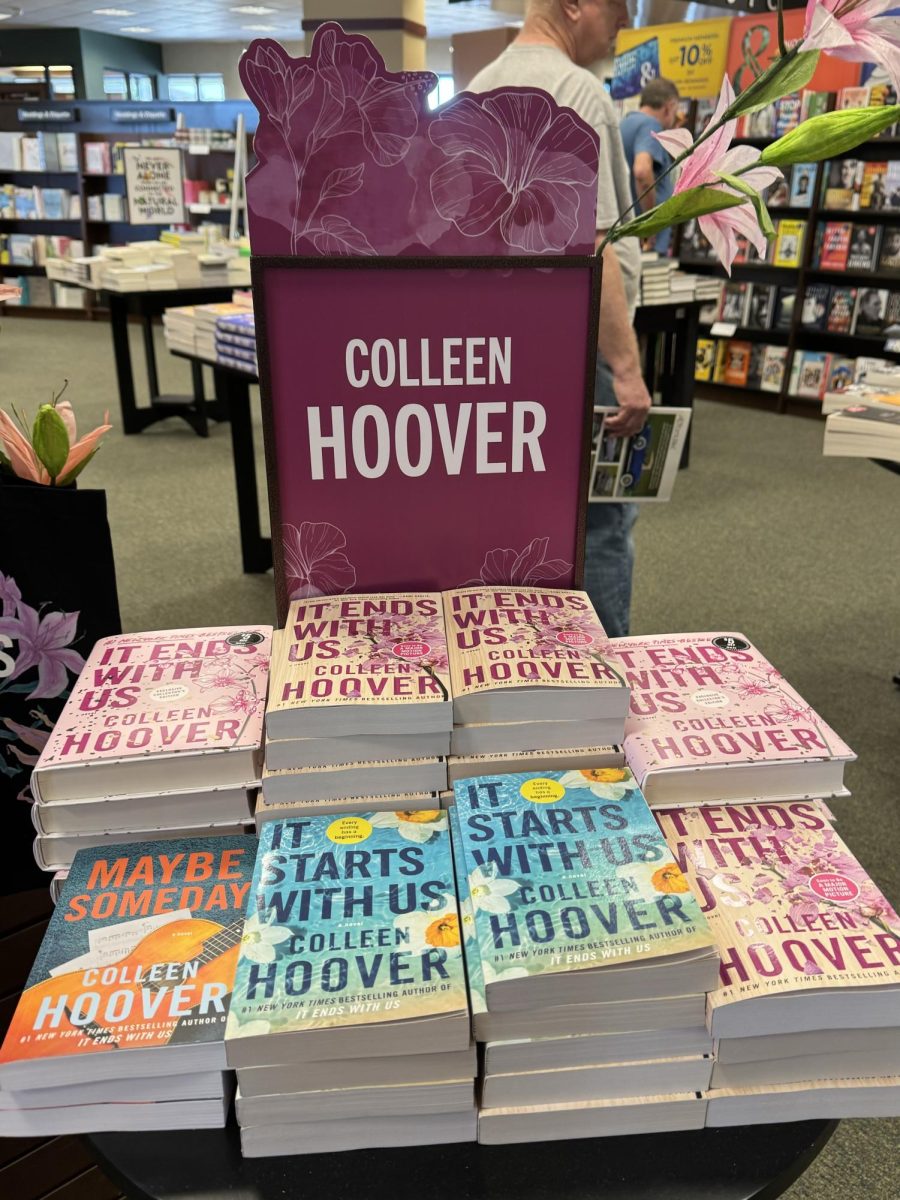There are a lot of issues in the world, and – rightfully so – these issues are often addressed in the media. Books, movies, music, every form of expression often makes its foray into the more uncomfortable side of life. And it’s incredibly important to do so, continually exposing the dark and heavy sides of the world through media is the best way to bring about change and awareness. However, it’s only beneficial if the subject is tackled well.
There are also a lot of Colleen Hoover books in the world. Hoover writes about a lot of the aforementioned touchy subjects. The book of hers that’s at the forefront of everyone’s attention currently is It Ends with Us, a novel she published in 2016 that was recently adapted into a movie. The movie has been shrouded by a lot of drama, and most of the time I see it being blamed on lead actress Blake Lively, and while she’s not completely blameless, she’s truly not doing anything too different from what Hoover did originally. She advertised a story that revolves around domestic violence as a rom-com. Lively is doing the same. Neither are right, but both are wrong.
I’m not a fan of Hoover in general, I think there’s some issues with her books across the board; and while I’m focusing on It Ends with Us right now, a lot of the grievances I have with this book apply to her other books as well. Primarily, my issues revolve around her representation of darker subjects, oftentimes there are storylines in her books about domestic violence, mental illness, and suicide.
As mentioned before, it’s extremely important to represent serious issues accurately. It Ends with Us is a story about a woman (Lily Blossom Bloom. She wants to be a florist.) who was deeply affected by witnessing the abuse her father inflicted upon her mother, before finding herself in an abusive relationship of her own. It had the potential to be a very profound, meaningful story. However, the depiction of Lily’s inner monologue is generally a very poor image of someone with such a trauma. Within her very first conversation with the male main character, Ryle, she tells him all the juicy details about her issues, and he does the same. Being open about one’s past, or coping through humor, are in no way comparable to telling someone, “When I was a kid, I would look forward to the nights they would fight. Because I knew if he hit her, the two weeks that followed would be great.,” within the first half hour of knowing them.
What makes this issue so interesting to me, is the fact that every now and then it’s actually not bad. Albeit few and far between, there are a few instances of the characters being completely realistic. If addressed better, I would even say these moments of the book were good. Pretty early on, Lily laments to herself that the abuse in her parent’s marriage was “inevitable” and that “not doing anything about it made [her] just as guilty.” From a character standpoint, that’s a great moment of Lily being pretty realistic. However, these sentiments are hardly addressed again. Lily see’s no character development on that front, and nowhere did Hoover include something to make it clear that Lily was wrong. She was a child, and that would have been a perfect part of Lily’s character to shine light on the issue Hoover’s tackling here.
The story and serious undertones (if you can even call them that, they’re literally the main plot) are treated with such a lack of tact that sometimes I found myself unsure if Hoover knew that there were actual, real people who had been through this. The very first paragraph of the book (remember, this is entirely marketed as a romance novel, and nothing more) is Lily reflecting on suicide as she is actively standing on the edge of a building, and the height of her contemplation is “Do they look at the ground as it rushed toward them and think, ‘well crap, this was a bad idea.’” I struggled to come up with the words to criticize this, honestly, it’s just such a wild thing to say in my mind. It’s so incredibly tasteless, and it’s diminishing to the (unmentioned) suicidal ideation that this definitely depicts. As the book continues, other topics are similarly reduced by constant sexual components that were completely unnecessary. Scenes of that nature can absolutely be beneficial to a story such as this, but Hoover seems almost unable to write a scene that doesn’t have some poorly placed sexual comment.
In the end, what makes me so sad is that this was a story that had potential. Hoover does have the potential to write books that aren’t that bad. I don’t think she’ll ever write the next Hunger Games, or anything like that, but she’s released a couple thrillers that are pretty decent. The problem with It Ends with Us, is that she was more dedicated to writing a romance novel than properly addressing the topics she decided to write about, despite being openly vocal about her own experiences with domestic violence. She degraded the situations of her characters in order to force the story into its rom-com cage, cloaking the level of seriousness in pink floral cover art, and a summary that lends to nothing more than a nice romance novel. Honestly, I don’t think It Ends with Us should have been a romance at all, but in the end the romance storyline would have been easily excusable if Hoover had given any recognition at all to the heavy content of the book. The official description hardly even alludes to it, and Hoover has gone on record explaining that she doesn’t like adding any sort of trigger warnings to her books because she doesn’t want to spoil the plot.
Personally, I don’t think I’m smart enough to figure out the entire plot of a book just from the author mentioning that it talks about domestic violence. And if I bought the book because I was in the mood for a light romance, and I got that instead, I’d want my money back.
I don’t claim to be an expert on trauma and dark topics or anything like that, but I can confidently say that if you’re going to write a story where issues like this take center stage, it should be accurate, it should be tasteful, and it should always mean something in the end. Don’t just throw in a character with a history of abuse or mental illness so you can check off “edgy” as a way to describe your book. Make that character’s past mean something, don’t disrespect them and all the people they represent by trivializing their problems.




